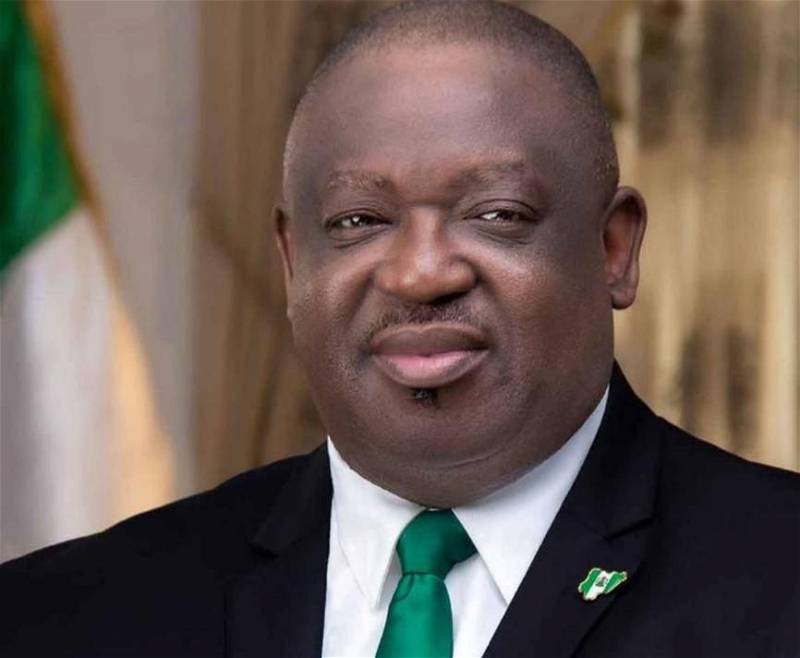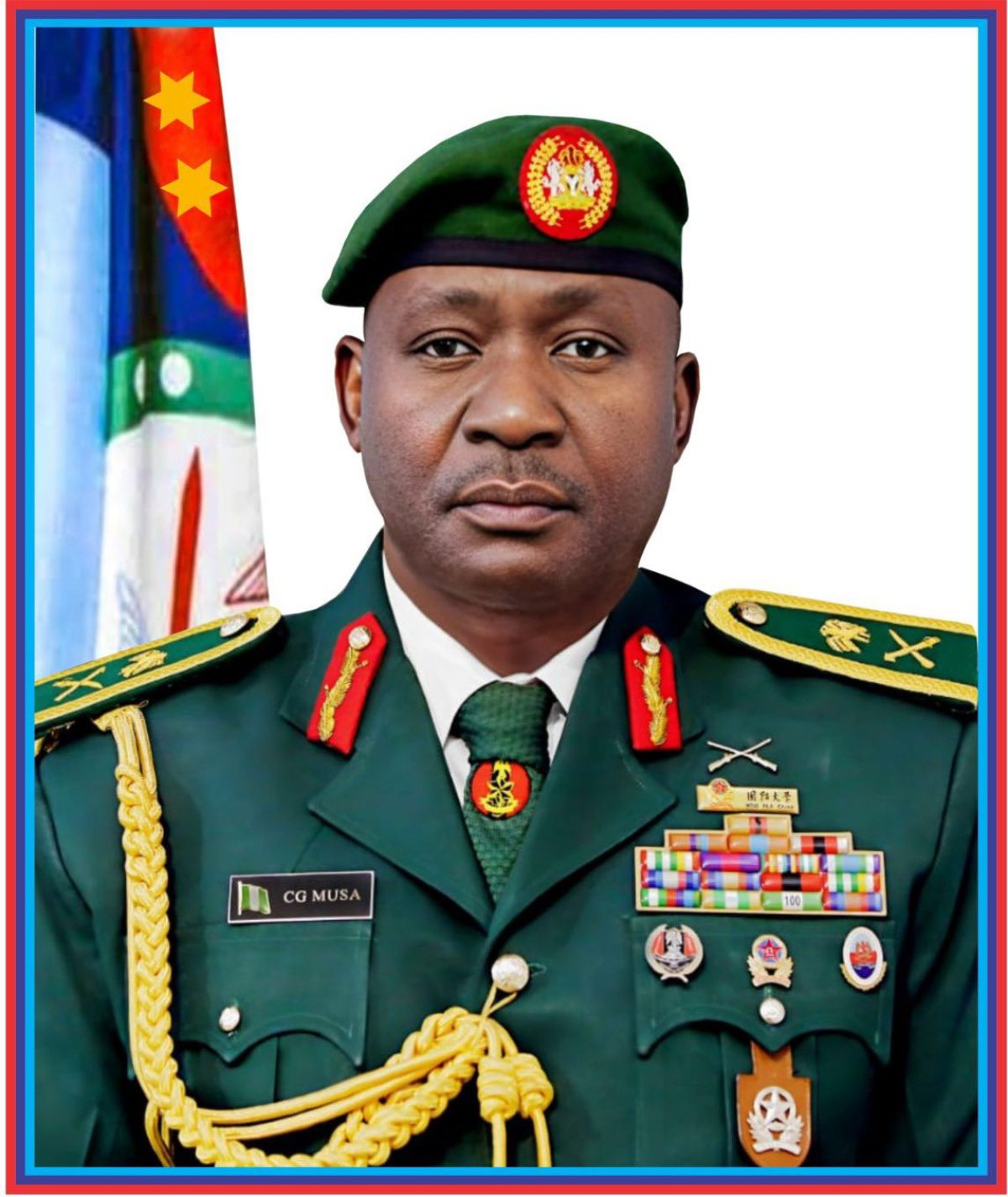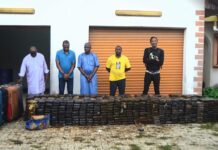The United States government has pledged continued humanitarian assistance to internally displaced persons in Adamawa state. The Mission Director of the US Agency for International Development (USAID) in Nigeria, Mr. Michael T. Harvey, gave the pledge during a tour of IDPs camps and assessment visits to community-based organizations sheltering the estimated 400,000 refugees who fled insurgency attacks in the northern parts of Adamawa, Borno, and Yobe states, to Yola.
While only a few thousands of the IDPs are staying in government-designated camps like the NYSC camp in Damare, administered by the Adamawa State Emergency Management Agency, the majority prefer to stay with relatives and family members, and in many cases, stretching the resources of their hosts.
 Speaking to journalists after meeting with members of the Adamawa Peace Initiative and local community leaders at the American University of Nigeria, Mr. Harvey said USAID will assist in sanitation programs, food and relief aids, and education of the IDPs. He noted, however, that the international community can only be part of, not the solution, to the mass displacement crisis facing the state.
Speaking to journalists after meeting with members of the Adamawa Peace Initiative and local community leaders at the American University of Nigeria, Mr. Harvey said USAID will assist in sanitation programs, food and relief aids, and education of the IDPs. He noted, however, that the international community can only be part of, not the solution, to the mass displacement crisis facing the state.
“I am hoping to see Adamawa State and the Federal Government provide more direct assistance to these people; the majority of whom are living with friends and family.”
The President of American University of Nigeria, Dr. Margee Ensign, who chairs the Adamawa Peace Initiative (API), the mainstream peacebuilding organization in the state comprising local community, religious and business leaders, accompanied Mr. Harvey who was also joined by Mr. Robert Watt, the Northern Nigeria representative of the UK Department for International Development (DFID). The team visited the Yola headquarters of the Adamawa Muslim Council where 3,493 displaced persons are taking shelter, the Bole community where families have taken in 801 IDPs, the St. Teresa’s Catholic Cathedral in Jimeta with 29,106 IDPs, and the National Youth Service Camp, Damare, which harbors close to 8000.
API member and Secretary of the Muslim Council, Imam Dauda Bello, welcomed the visiting humanitarian team with other leaders and thanked them for their assistance and solidarity. Imam Dauda said membership of the Council comprises Muslim elders who are only interested in maintaining peace in Nigeria’s northeast and condemned terrorism.
“Islam does not preach violence but the message of peace. This war is not a religious war; the actions of these terrorists are against the Holy Quran”.
The Council’s Public Relations Officer, Malam Saidu Bobboi, suggested that the IDPs’ most immediate needs, including mobile education and medical care, should get priority attention.
Coordinator of the Emergency Relief Distribution Committee of the Muslim Council, Alhaji Salihi Atiku, told the team that insurgency knows no religion, race or sex. “Everybody is a victim.” He also noted that about 37,000 people have been displaced and some of them have had to endure snake bites, trek through bush paths and feed on raw corn for four days trying to find safety. Atiku urged the visiting team to understand the victims and build trust in them so that they will return home someday.
 Following the sad stories emanating from the camps, AUN President Ensign reassured the refugees that the American University of Nigeria, with the support of the US Government, would continue to provide succor to them. She urged the community to stay united and announced that the items for distribution were from the US Government.
Following the sad stories emanating from the camps, AUN President Ensign reassured the refugees that the American University of Nigeria, with the support of the US Government, would continue to provide succor to them. She urged the community to stay united and announced that the items for distribution were from the US Government.
Mr. Harvey told the Muslim Council elders, “There are lots of bad stories coming out of Nigeria, but Yola has a good story to tell, one in which businesses, mosques and churches are coming together to take care of the people in need.”
He advised them to teach community youths how to sieve information gathered from the “internet, radio, and television.” He also assured that USAID would stay engaged in supporting the people of Adamawa State who are internally displaced but advised the people to share their succor amongst themselves so that everyone benefits.
The USAID team also visited the Bole community where the Chief of Bole, Alhaji Abdulmumin Abubakar, addressed the visiting them; he thanked AUN and the API, who have been supportive since the beginning of the year by giving the IDPs seed crops to plant. He added that some of the IDPs were now members of the community as they owned farmlands. He also thanked the US Government for its benevolent support to the IDPs.
While at St Teresa’s Catholic Church, Jimeta, Mr. Harvey assured the people that the US will render necessary support services to manage the crisis. The team was received by the Catholic Bishop of Yola and API member, Bishop Stephen Mamza and applauded by thousands of mostly women and children refugees inside the Church building.
President Ensign spoke in a similar vein: “We share your suffering, we share your pain, and we will make sure we do our best to support you.” The team later inspected the medical facility in the Church premises where Mr. Harvey promised assistance.
On Saturday, President Ensign led staff and alumni of the American University of Nigeria and API members to distribute relief materials, including sanitation materials donated by alumni of the university, to the 17,290 IDPs sheltering at the Jimeta headquarters of visited Jama’atu Nasril Islam (JNI).
So far, over 205,000 IDPs have benefitted from the extensive humanitarian support from the American University of Nigeria and API, since March when the team made donations to refugees at the palace of the emir of Mubi. This figure includes 99 staff families, whose burden of harboring displaced relatives has been shared by the University, the latter distributing relief items, including food, blankets, soap and other items, to help them alleviate their burden.



